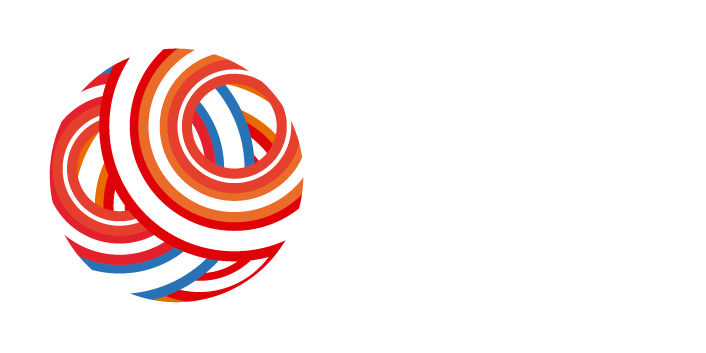
2024 Scholarship selection committee
PATHere.org is pleased to announce the members of its 2024 Scholarship Committee: José Eduardo Cornelio, Raúl Gutiérrez, and Lucía Isabel Stavig, who have
the responsibility of evaluating the candidates and selecting the recipients of
PATHere.org’s 2024 Scholarships. We thank each of the committee members for his or
her efforts to further the goals of this educational program.
JOSÉ EDUARDO CORNELIO

José Eduardo Cornelio is an associate professor in the Department of Modern
Languages of Ursinus College, Pensilvania.
He did his undergraduate studies at the School of Letters
and Humanities of the National University of San Marcos, in Lima, and earned his
masters and doctoral degrees from Georgetown University, in Washington, D.C. He was
part of the the research team on the project Masters of Peruvian Painting of the Twentieth
Century of the Editorial Group of El Comercio, for which he wrote the biographical
artistic essays on the painters Julia Codesido, Venancio Shinki, and David Herzkovitz. He
has published articles and reviews in the cultural supplement Identidades; journals
Letras, Revista de Crítica Literaria Latinoamericana, A Contracorriente, Studies in Latin
American Popular Culture, Confluencia; the encyclopedia Christian Muslim Relations. A
Biographical History, coordinated by the University of Birmingham, in the United
Kingdom; books Descalzar los atriles, Vanguardias literarias en el Perú y España, Norteamérica y tiempos de crisis, as well as others. Recently, he has published with Enrique Cortez a critical edition of Júbilos de Lima y fiestas reales ([1723] 2003) by the Criollo scholar Pedro de Peralta Barnuevo.
RAÚL GUTIÉRREZ
 Raúl Gutiérrez is an accomplished sales leader with over 20 years in the consumer
packaged goods (CPG) industry. His career began in Lima, Peru, where he made
significant strides in pharmaceutical sales with Eli Lilly. Raul’s journey continued at
PepsiCo (USA), where he has excelled in various sales leadership roles, notably as Senior
Account Manager at Frito-Lay North America. Here, he oversees a substantial portfolio,
driving significant revenue growth and strategic market expansions in the Northeast
Region. Raul’s leadership has led to consecutive years of growth and numerous industry
awards, including PepsiCo’s Chairman’s “Ring of Honor.”
Educationally, Raul holds an MBA from Villanova University, with a
specialization in Strategy and AI & Machine Learning applications in business. His
extensive experience, coupled with his academic background, positions him as a strategic
leader capable of steering high-performing teams toward sustained success.
Raúl Gutiérrez is an accomplished sales leader with over 20 years in the consumer
packaged goods (CPG) industry. His career began in Lima, Peru, where he made
significant strides in pharmaceutical sales with Eli Lilly. Raul’s journey continued at
PepsiCo (USA), where he has excelled in various sales leadership roles, notably as Senior
Account Manager at Frito-Lay North America. Here, he oversees a substantial portfolio,
driving significant revenue growth and strategic market expansions in the Northeast
Region. Raul’s leadership has led to consecutive years of growth and numerous industry
awards, including PepsiCo’s Chairman’s “Ring of Honor.”
Educationally, Raul holds an MBA from Villanova University, with a
specialization in Strategy and AI & Machine Learning applications in business. His
extensive experience, coupled with his academic background, positions him as a strategic
leader capable of steering high-performing teams toward sustained success. LUCÍA ISABEL STAVIG

Dr. Lucía Isabel Stavig is a Postdoctoral Fellow at the Center for Research on Race and
Ethnicity in Society (CRRES) and Visiting Assistant Professor of Anthropology at
Indiana University. In 2025, Dr. Stavig will begin an appointment as Assistant Professor
of Global Health Governance at the Hamilton Lugar School of Global and International
Studies. Prior to these appointments, she was a Penn-Mellon Just Futures Postdoctoral
Fellow at the University of Pennsylvania. Dr. Stavig received her PhD in Cultural and
Medical Anthropology from University of North Carolina at Chapel Hill (2022), a
Master’s in Anthropology from the University of Lethbridge, Canada (2017),
a Master’s
in Justice and Social Inquiry from Arizona State University (2013), and a Bachelor of
Arts from New College of Florida (2010). Her work appears in Latin American and
Caribbean Ethnic Studies, Anthropology and Humanism, and Signs: Journal of Women in
Culture and Society, and the International Working Group for Indigenous Affairs
(IWGIA). She is Peruvian-American and has had the honor to learn with the Runa
(Quechua) of the Cusco area, Las Abejas and the zapatistas in Chiapas, Mexico; the
Rama people in Nicaragua; the Ñhäñhú (Otomí) in Hidalgo, Mexico; and the Kainai
(Blackfoot) in southern Alberta. Dr. Stavig’s research explores how Indigenous peoples’
struggles for health are also political defenses of their lands and more-than-human
relations. Her work in reproductive and Indigenous justice follows the efforts of First
peoples from Canada to southern Peru to heal from colonial reproductive violences
(including forced sterilization, forced contraception, obstetric violence, and genocide) to
create Indigenous futures for generations to come.


